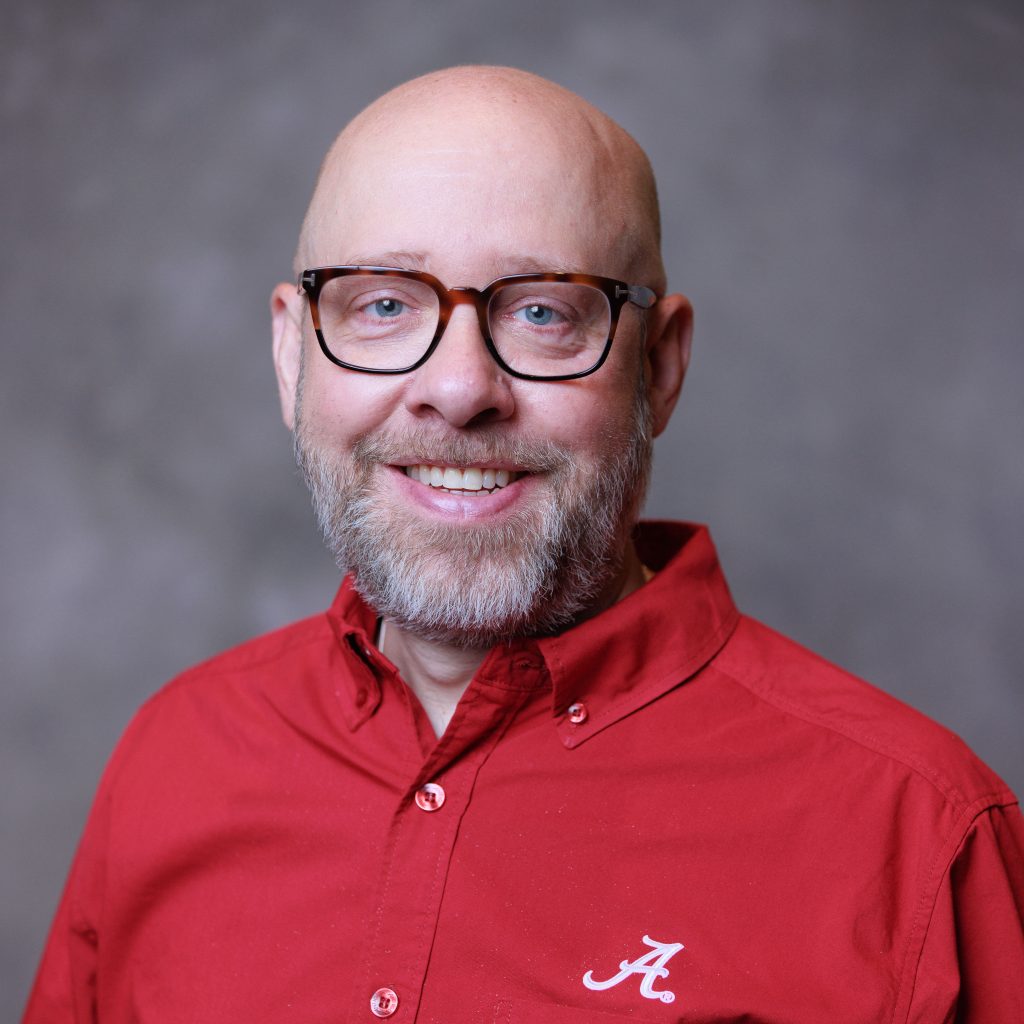
EDUCATION
| Degree | Area of Study | University |
|---|---|---|
| Ph.D. | Educational Leadership and Research; Cognate: Curriculum Theory | Louisiana State University |
| M.Ed. | Educational Research; Focus: Applied Research, Measurement, and Evaluation | Louisiana State University |
| M.Ed. | Counseling and Personnel Services | University of Maryland College Park |
| B.A. | English, History, and Leadership Studies | University of Minnesota Twin Cities |

AWARDS AND HONORS
| Year | Award |
|---|---|
| 2021 | University of Minnesota College of Liberal Arts Alumni of Notable Achievement |
| 2020 | Outstanding Contribution to Student Affairs Through Teaching, NASPA Region III |
| 2018 | Diamond Honoree, ACPA – College Student Educators International |

AREAS OF EXPERTISE
Curriculum Theory in Higher Education
Student Affairs in Higher Education
Critical Theory and Philosophy
Qualitative and Post-Qualitative Research Methods
Critical Digital Pedagogy
James Baldwin
Knowledge and Curricular Banning

CURRENT RESEARCH AND GRANT PROJECTS
- Knowledge and Curricular Banning in Colleges and Universities
- Authoritarianism in Higher Education
- Curriculum Issues in Higher Education
- Nonviolent Pedagogy and Philosophy in Higher Education Pedagogy and Practice

RESEARCH INTERESTS
Curriculum Theory in Higher Education
Knowledge and Curricular Banning
Critical Theory
Equity in Higher Education
Philosophical and Post-Humanities Inquiry in Higher Education
James Baldwin
Critical Digital Pedagogy

HIGHLIGHTED PUBLICATIONS
- Panozzo, M., & Eaton, P. W. (Eds.).(In Press). Battle of the bans: Narratives of reading and engaging with banned books.
- Smithers, L., Eaton, P. W., & Flint, M. (2025). Administrative life in the time before crisis: Affect and the codependence of data and fear. Critical Studies in Education. https://doi.org/10.1080/17508487.2025.2472003
- Eaton, P. W. (2024). Mastery logics in higher education and student affairs. Journal of Educational Foundations, 37, 43-72.
- Eaton, P. W., Flint, M. A, & Smithers, L. (2024). Critical inquiry in and against 21st-century authoritarian times. Cultural Studies <–> Critical Methodologies, 24(5), 331-342. https://doi.org/10.1177/15327086241246025
- Eaton, P. W. (2023). James Baldwin’s curricular voice: Interrogating whiteness as curriculum. Curriculum Inquiry, 53(1), 75-98. https://doi.org/10.1080/03626784.2022.2159273

PROFESSIONAL MEMBERSHIPS / ACTIVITIES
- Assistant Editor, Journal of Curriculum Theorizing (Higher Education Section)
- Editorial Board, Contemporary Perspectives in Philosophy and Technology
- AERA Division B, Section 1 Program Co-Chair (2026)

TEACHING PHILOSOPHY
Dr. Eaton’s teaching philosophy begins with the premises of nonviolence, love, and critical hope. Informed by feminist and critical pedagogues, he believes we learn best in strong communities of care and mutual relationality. His classrooms are spaces of becoming~human and becoming~professional. Eaton believes strongly in itinerant curricular approaches, deep reading, listening, and dialoguing, and create space where we can live questions, honoring each person’s contributions holistically, compassionately, and nonviolently.

BIOGRAPHY
Dr. Paul William Eaton is Associate Professor of Higher Education and Student Affairs at The University of Alabama. His research interests include Curriculum Theory and Studies in Higher Education, Equity in Higher Education, Critical Theory, Philosophical and Post-Humanities Inquiry, Post-Qualitative & Posthumanist Inquiry, James Baldwin, Digitized College Student Experiences, and Critical Digital Pedagogy. He teaches courses focused on college student development and student affairs, critical and cultural studies in higher education, educational and qualitative research methods, and special topics in education. Eaton has taught graduate and undergraduate seminars, including: Banned Books: Historical and Contemporary Issues; James Baldwin: Race, Queerness, and Social Critique; and Digitizing Higher Education. He serves on the Editorial Board for the Journal of Curriculum Theorizing, and Contemporary Perspective in Philosophy and Technology. He received his Ph.D. from Louisiana State University, M.Ed. from the University of Maryland College Park, and B.A. from the University of Minnesota Twin Cities.
